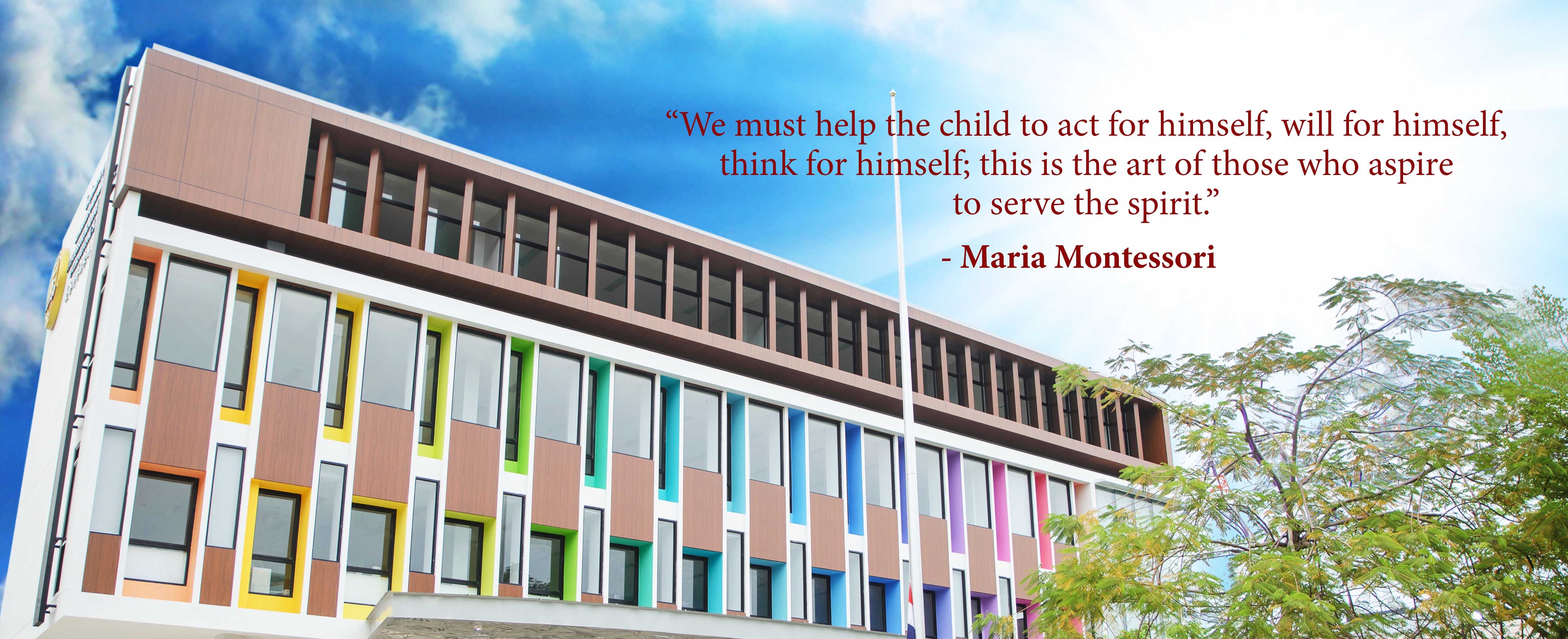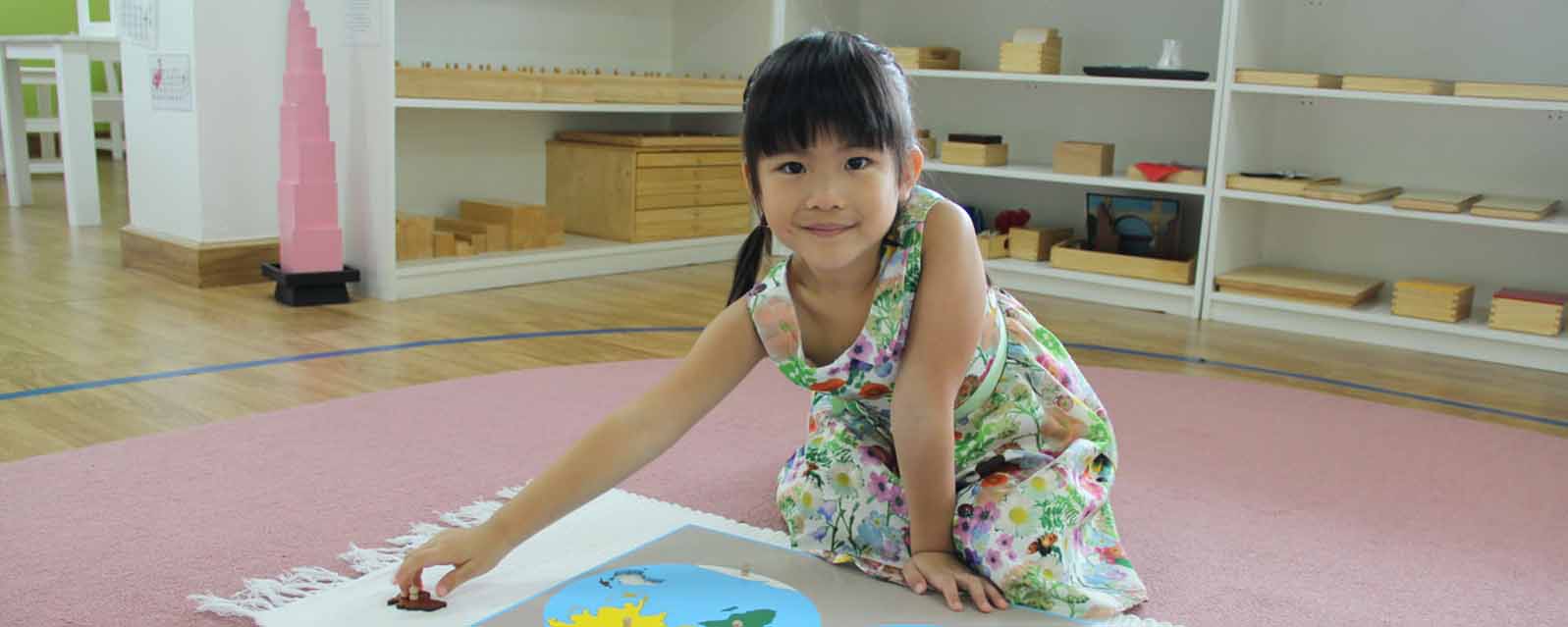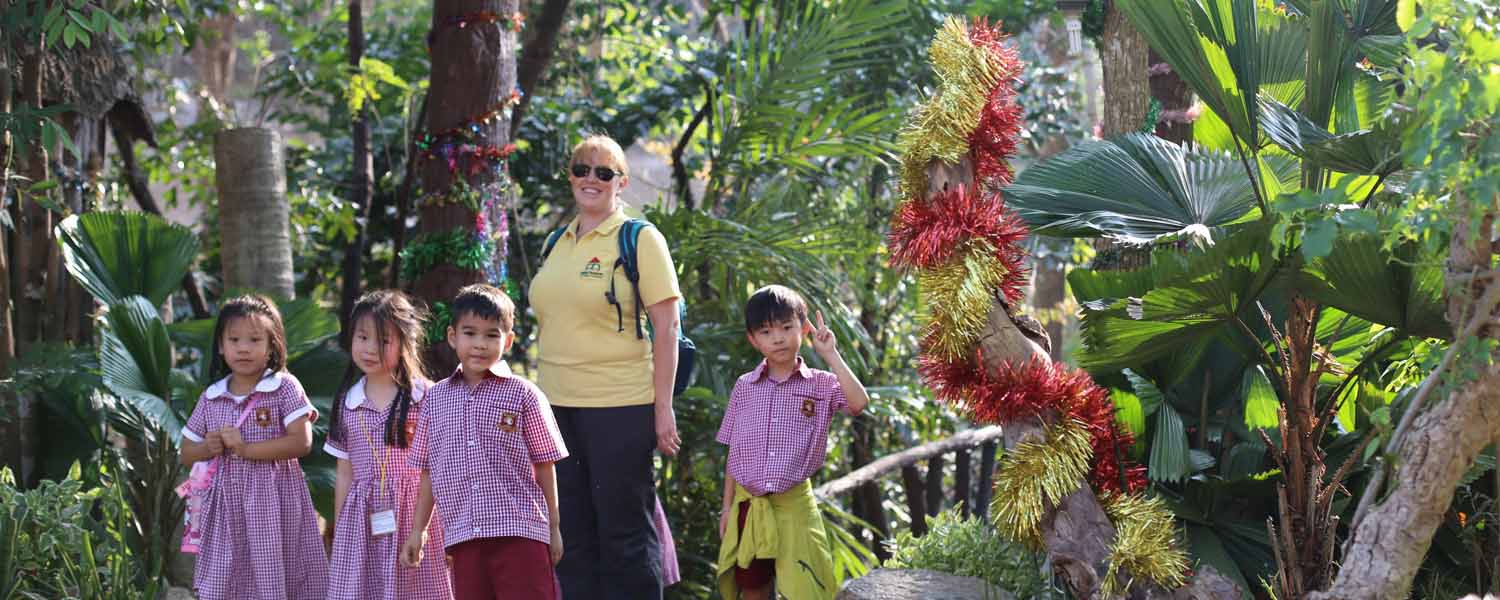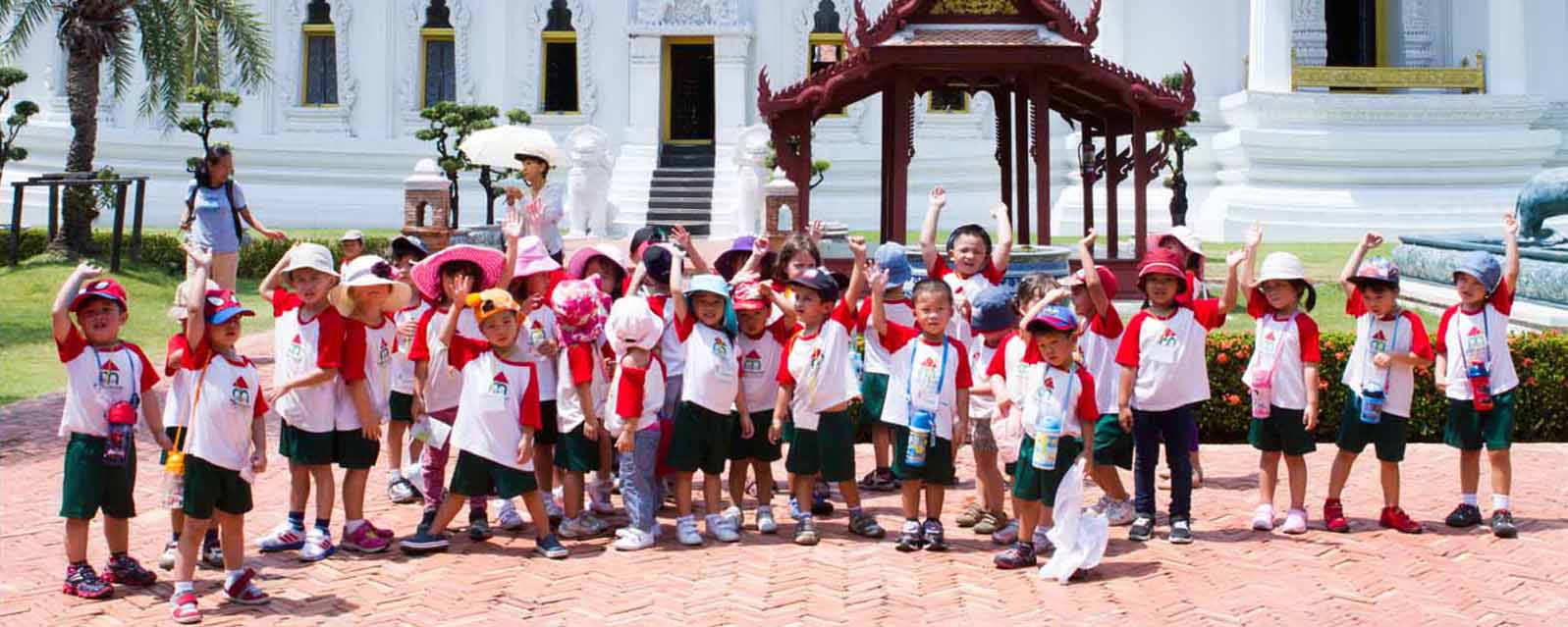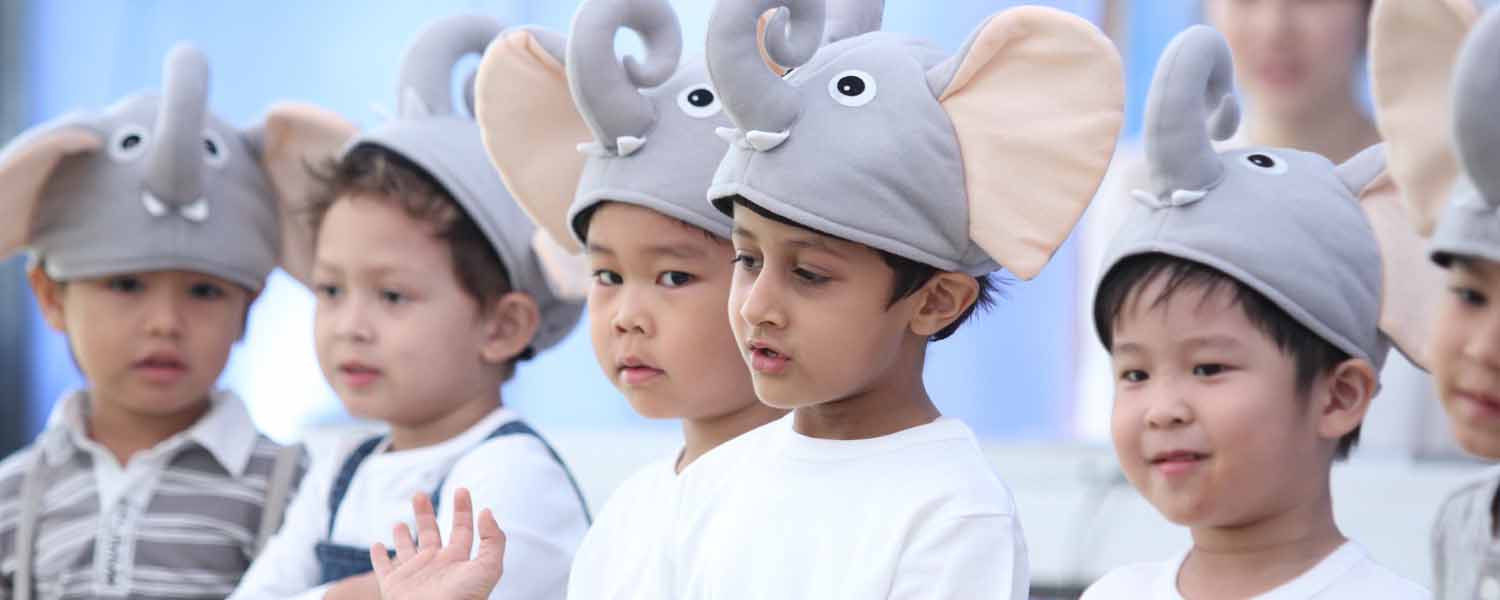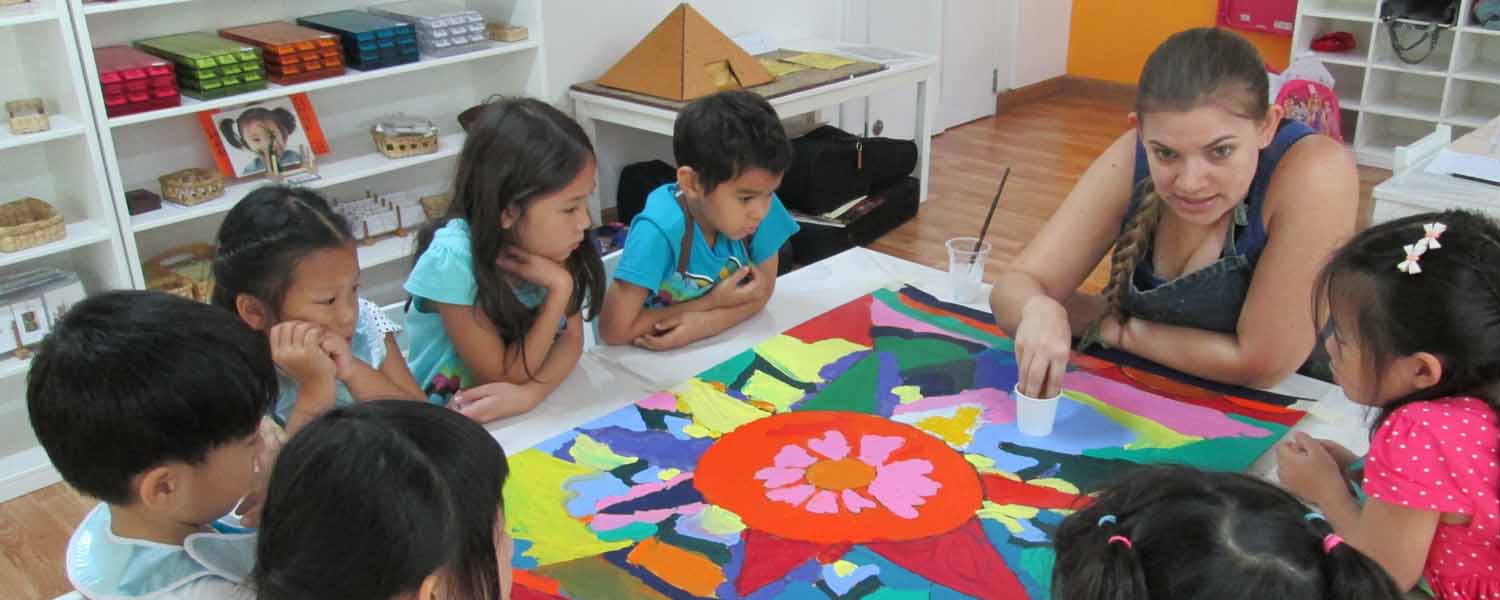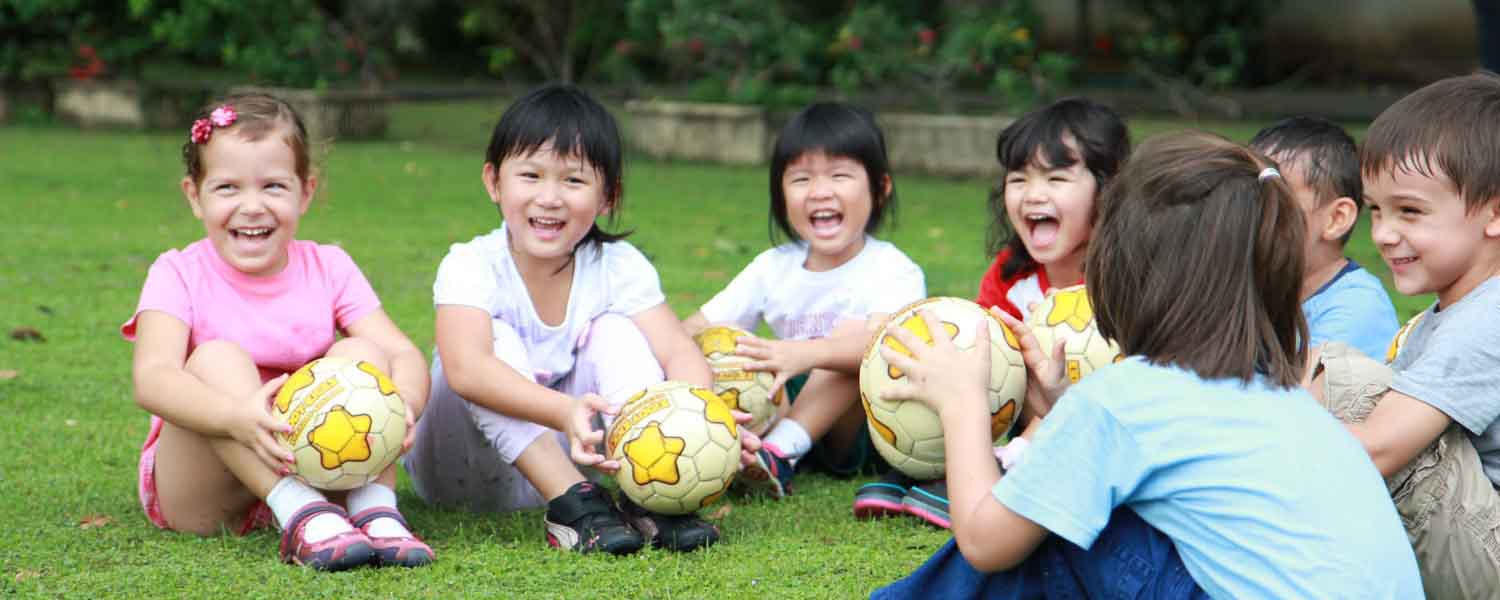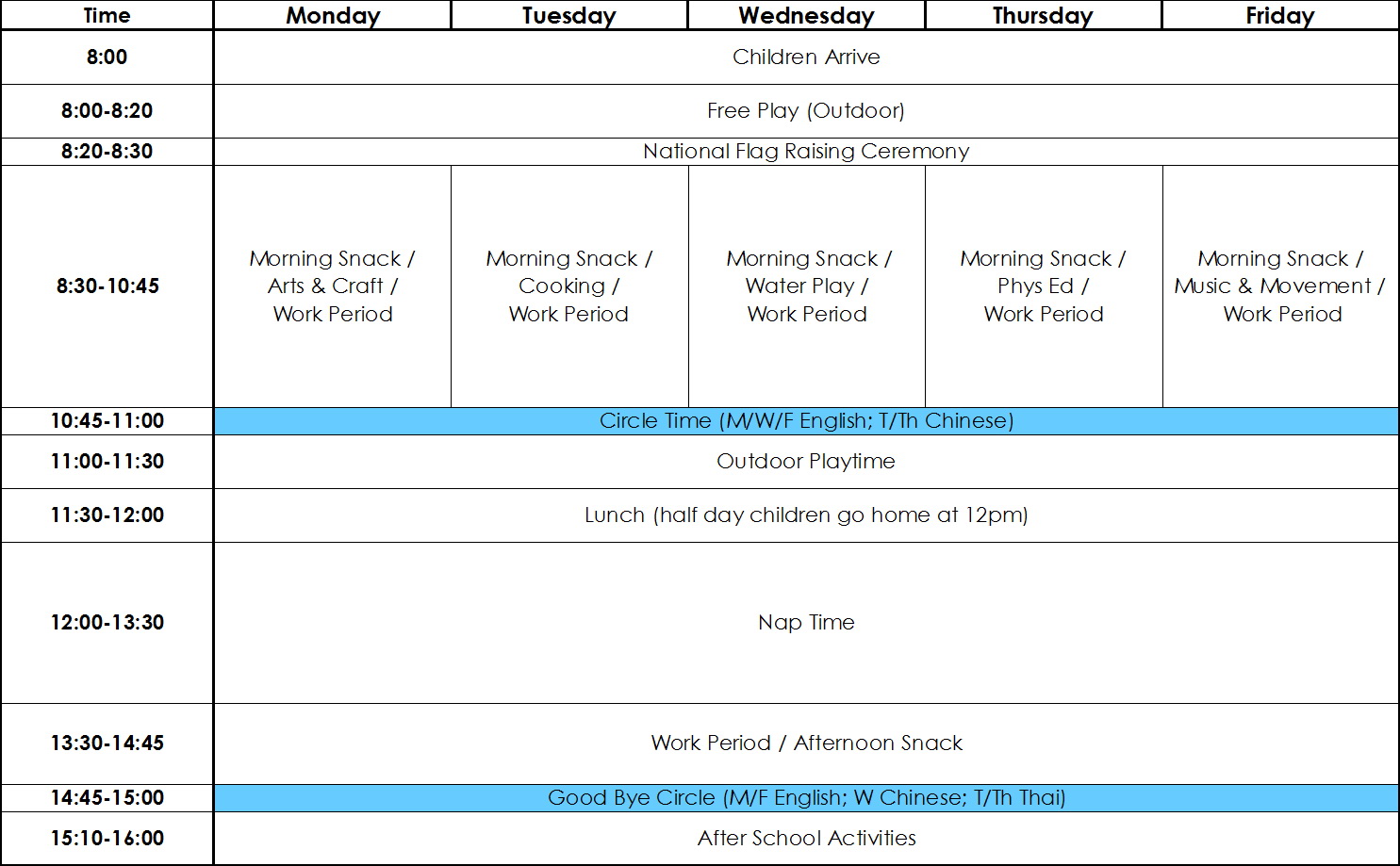Toddler (2-3 years)
The Toddler program, for children 2-3 years old, takes advantage of the toddler’s natural drive to act independently. Learning to care for themselves – washing hands, putting on jackets – and do it for themselves is an important part of the toddlers’ work. In this language-rich environment, teachers support and guide toddlers as they explore order and disorder, and refine their emerging motor skills. Outdoor play is part of the daily routine.
Toddler exercises and activities recognize that children learn by doing. Classroom materials are always accessible, attractive, safe, and geared for a child’s success. Activities are changed regularly in response to the child's need for variety and challenge as they grow and learn. Our safe, loving, gentle atmosphere puts children and parents at ease and makes for a trusting, spontaneous transition to school.
Toddlers come to the Academy five days a week, and may choose to stay for just mornings or a full day. After their Toddler year, children join our Casa program.
Gross Motor Development
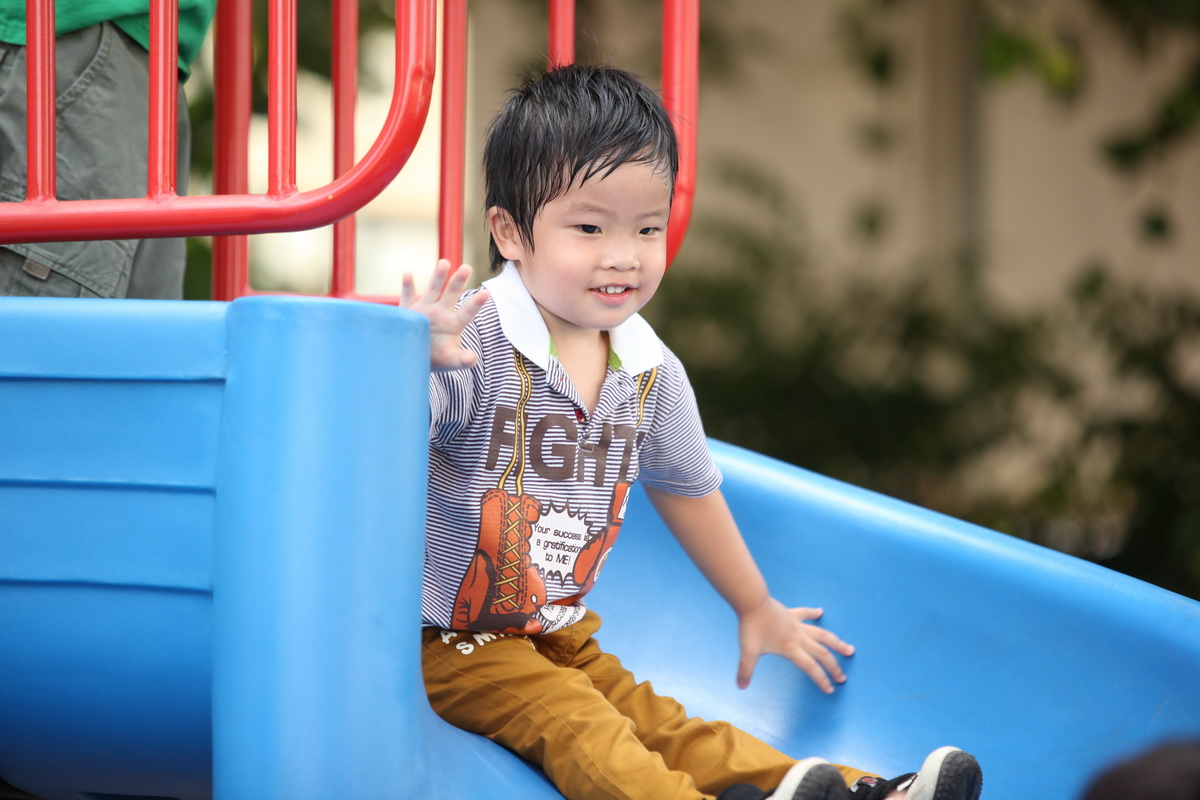 Young learners are in a sensitive period for physical movement. This is a time where the joy of moving physically creates the need to walk, run, dance and climb with confidence. They can’t resist being involved in gross motor activities, and become physically daring.
Young learners are in a sensitive period for physical movement. This is a time where the joy of moving physically creates the need to walk, run, dance and climb with confidence. They can’t resist being involved in gross motor activities, and become physically daring.
Practical Life Exercises
 Practical Life Exercises are considered as the foundation of the Montessori curriculum. The fundamental tools for learning (sense of order, concentration,
Practical Life Exercises are considered as the foundation of the Montessori curriculum. The fundamental tools for learning (sense of order, concentration, 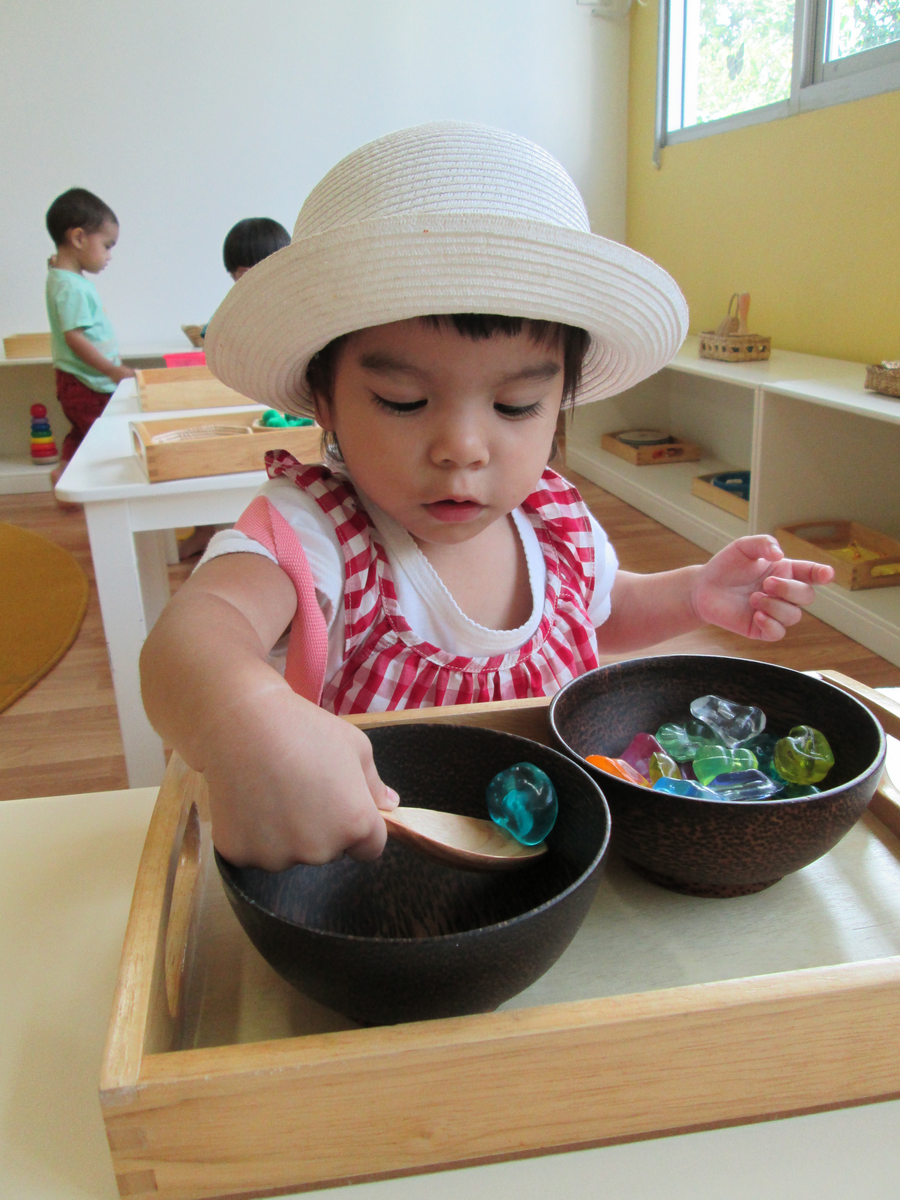 coordination, culture and independence) are established as the child learns the simple tasks involved with care of self, care of environment, care of plants and animals, basic motor skills, and grace and courtesy.
coordination, culture and independence) are established as the child learns the simple tasks involved with care of self, care of environment, care of plants and animals, basic motor skills, and grace and courtesy.
Self-motivated tasks, or the more commonly known as self-directed exercise, are initiated daily by the children. This is what Dr. Maria Montessori described as “the materials calling the child.” Activities such as buttoning, hand washing, brushing teeth, watering the plants, feeding the animals as well as the preliminary exercises like pouring, scooping, grasping and cutting are taught in a careful manner, as these are all basic living skills. Care of the environment involves dish washing, sweeping, scrubbing the table and mirror polishing. The purpose is to instill the child’s love toward their living environment.
Language Arts
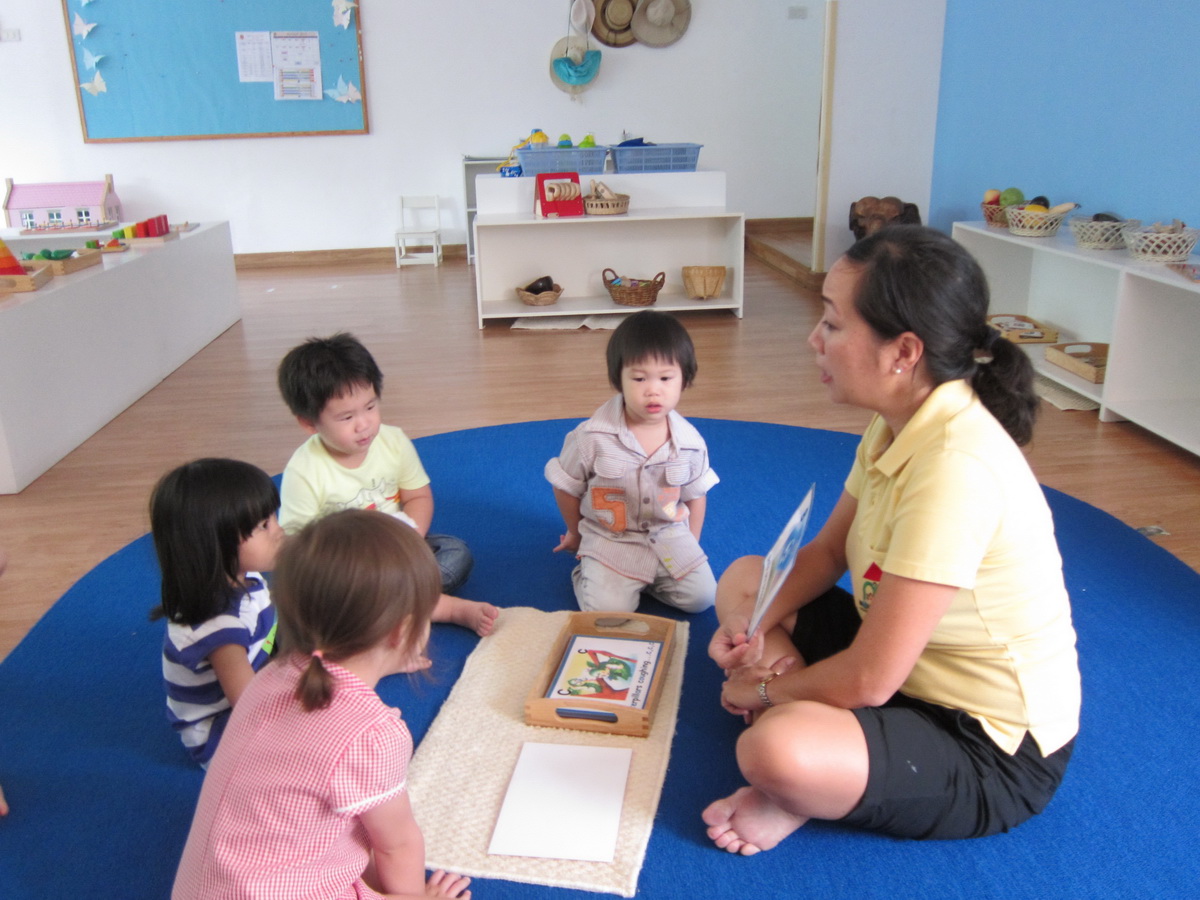 In the Montessori environment, there is an emphasis on precise usage of language so that the child hears clear models of English, Chinese and Thai. The names of colors, shapes and sizes are reinforced. The child is also encouraged to speak in complete sentences. This is the period where children are exposed to vocabulary in all three languages through a variety of training that involves stories, poems, songs, nursery rhymes and games.
In the Montessori environment, there is an emphasis on precise usage of language so that the child hears clear models of English, Chinese and Thai. The names of colors, shapes and sizes are reinforced. The child is also encouraged to speak in complete sentences. This is the period where children are exposed to vocabulary in all three languages through a variety of training that involves stories, poems, songs, nursery rhymes and games.
Sensorial Education / Pre-Mathematics Exercises
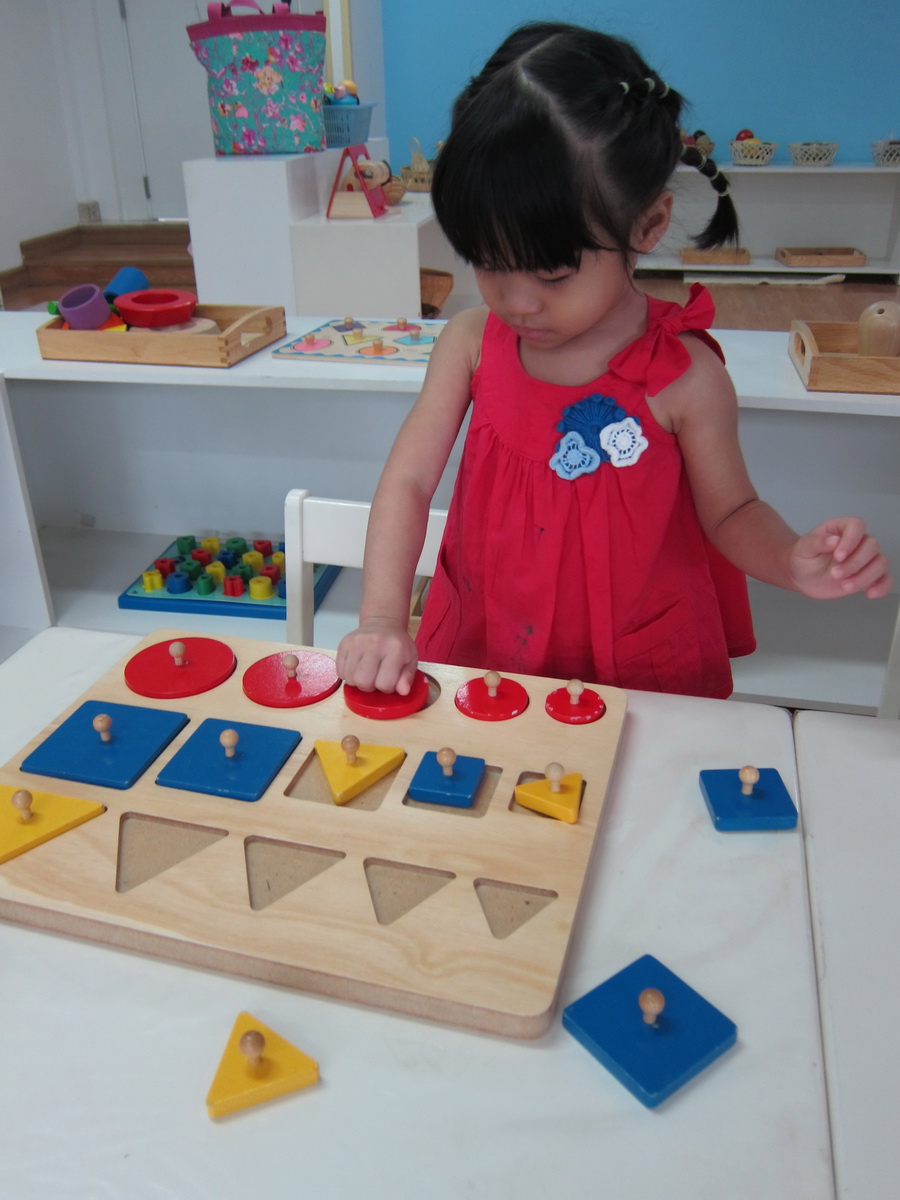
.jpg) The base for a love of math comes not from formal lessons, but from blissful experiences in seeing forms and objects, in exploration with hands, and in moving through space. The creation of the mathematical mind, comes from early, easy, everyday activities—collecting, counting, sorting, putting things in order, classifying, comparing sizes and colors, carrying heavy objects by hand, setting the table, and discovering relationships and patterns through these activities.
The base for a love of math comes not from formal lessons, but from blissful experiences in seeing forms and objects, in exploration with hands, and in moving through space. The creation of the mathematical mind, comes from early, easy, everyday activities—collecting, counting, sorting, putting things in order, classifying, comparing sizes and colors, carrying heavy objects by hand, setting the table, and discovering relationships and patterns through these activities.
Music & Art

 Circle time and music appreciation lessons help the children express themselves with music. Children will be exposed to music, songs and dance from around the world, how to create and replicate rhythm, the use of various instruments and pitch recognition.
Circle time and music appreciation lessons help the children express themselves with music. Children will be exposed to music, songs and dance from around the world, how to create and replicate rhythm, the use of various instruments and pitch recognition.
Art is an integral part of the classroom where children are encouraged to refine their skill in cutting, pasting, tracing, coloring and painting. In art appreciation classes the children will explore various mediums and styles to create art.
Culture

 Children are introduced to culture through a fun and hands on approach. Children learn through personal exploration in our beautiful garden, planting seeds and watering them, and caring for live animals in the classroom. They participate in a variety of cultural activities which celebrate diversity such as Songkran, Loy Kratong, Chinese New Year, Easter and Christmas.
Children are introduced to culture through a fun and hands on approach. Children learn through personal exploration in our beautiful garden, planting seeds and watering them, and caring for live animals in the classroom. They participate in a variety of cultural activities which celebrate diversity such as Songkran, Loy Kratong, Chinese New Year, Easter and Christmas.




